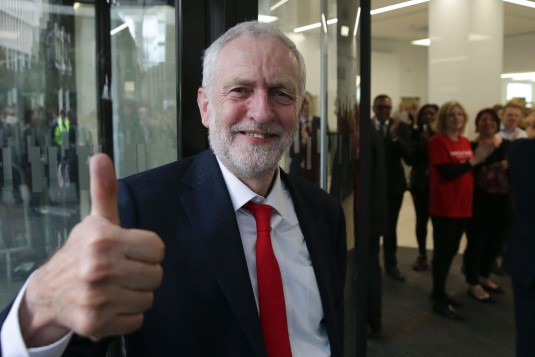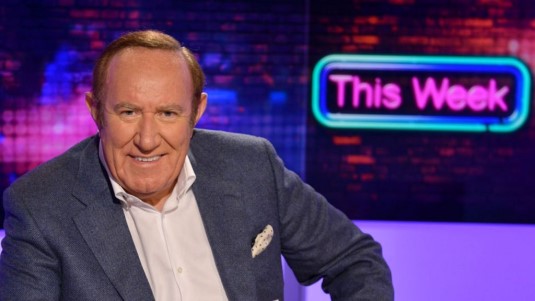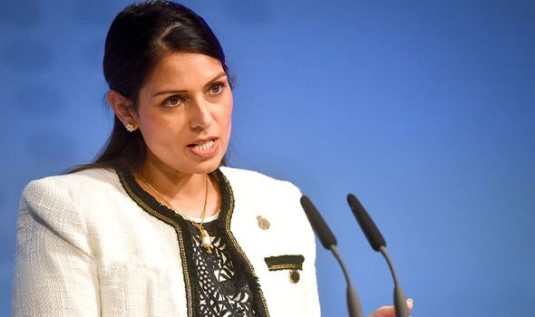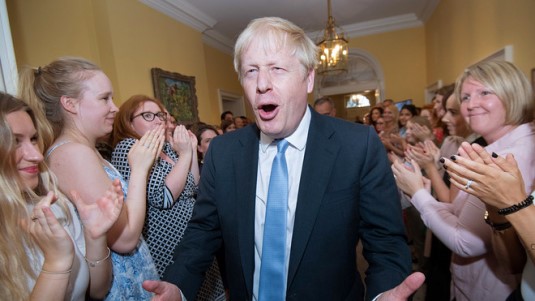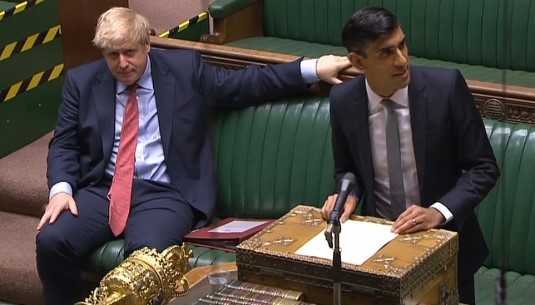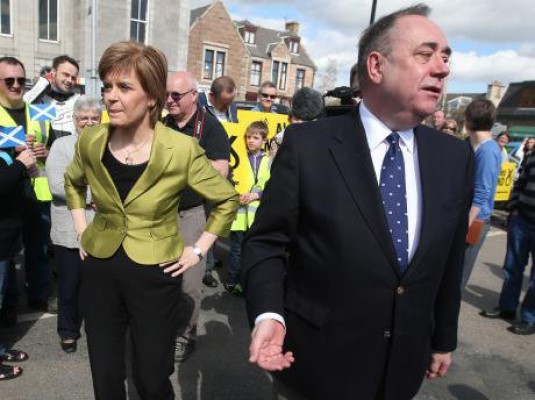
Basking in international adulation, in as far anyone's had a good crisis Sturgeon certainly has. Largely staying in step with the catastrophe we've seen in England, Scotland has the worst excess death rate in Europe after England and Spain. Yet her fronting up the daily press briefings and being seen to be hands on, as well as pursuing a containment and elimination strategy has played extremely well. The perception Sturgeon has handled the crisis better than Johnson is what counts, and this is likely to help the SNP to an easy victory in next year's Scottish parliamentary elections. Yet, an Alex Salmond-shaped shadow is throwing shade on this skip along the sunny path to Holyrood. Following his acquittal of sexual assault charges back in March, some commentators have salivated at the prospect of a split in the SNP between those who feel he was stitched up and those supportive of Sturgeon's conduct. Those alleging Sturgeon attempted to throw her former friend and mentor to the wolves considering the slapdash way the Scottish government went about investigating the allegations. There is added rowing over when Sturgeon knew what and when, with her and Salmond providing differing accounts, and now matters aren't helped by the Scottish government's failure to hand documents over into the inquiry. What a mess.
Immediately, the knives were out after the court case and the cry of conspiracy went up. Salmond, who resigned from the SNP when he was charged, is looking for a come back and is seeking readmission to the party and selection for a seat for next year's election. Additionally, Joanna Cherry is looking to move from Westminster to Edinburgh. Writing for The National, she said "The sad reality is that because Johnson won big in England and has an 80-seat majority, the SNP group at Westminster have less power in this parliament with 48 seats than we had with 35 seats in the previous hung parliament." Perhaps if the SNP hadn't led the charge with the Liberal Democrats in enabling another election, we wouldn't be in this situation. This is by the by. The point of Cherry's article is the idea Brexit can only be fought by pushing independence, and this (implicitly) demands a new leadership. I.e. Her and Salmond.
Sturgeon loyalists are spooked. Since the 2014 referendum, the fortunes of the independence-at-any-price wing of Scottish nationalism has waxed and waned in the SNP. There is a palpable sense of impatience with Sturgeon who, despite her portrayals by the southern Tory press, is every inch the cautious constitutionalist. She learned from the resurgence of Scottish Toryism that the timing of a referendum push is a political art, and so going hell for leather might stir up the dying embers of Scottish unionism. With politics fatigue being a thing, this is a very real danger. The hardcore nationalists are uninterested in nuance and want to force the issue. A Salmond/Cherry ticket is the vehicle of choice, but others are stirring. Perhaps the most credible of these are fronted by former SNP MSP and 55 year veteran of the party, Dave Thompson. He has argued for an 'Alliance for Independence' to stand in the list section of next year's elections, and has backing from a sitting MSP. If Salmond is blocked from standing as a SNP candidate, an alternative list is a possibility - with all the consequences that has for diminishing the party's representation in Holyrood.
Unfortunately for Sturgeon, it appears her side are unwittingly set on engineering such an outcome. Squashing Salmond is a toughie, so they've come for a softer target. Cherry's hoped-for jump back to Holyrood would be at the expense of former SNP Westminster group leader, Angus Robertson. Both are looking to get selected for Edinburgh Central. And it just so happens Robertson is a close supporter of ... the First Minister. In a move worthy of Scottish Labour's stitch up culture, a rule change for parliamentary candidates was up for consideration by the SNP NEC on Thursday evening. Prospective candidates who are presently MPs would be forced to quit Westminster if they are selected to run for Holyrood, and find £10,000 to pay toward the subsequent by-election bill. Ouch. This wouldn't present much of a problem for Cherry, but could prove off-putting for future politicians who'd want to make the move - and send a signal that any challenge to the leadership will be met by administrative as opposed to political means.
This then is where the slow burn Salmond/Sturgeon split is at. Can the SNP keep the camps together? The political differences aren't insurmountable, but we're talking about careers and place-taking. As we know from Labour's internal problems of recent years, the denial or defence of established positions can provoke the most intense and bitter infighting. Presently, Sturgeon has the apparatus and the upper hand, but if Scottish politics since the independence referendum has taught anything, a seemingly invincible hegemony can evaporate if conditions are just right. A misstep now could split the forces of nationalism and perhaps concede enough space for the Tories, now in search of a new leader, and Labour, currently in search for a political strategy, to crawl back into contention. Stranger things have happened in politics, whether desired or not.


